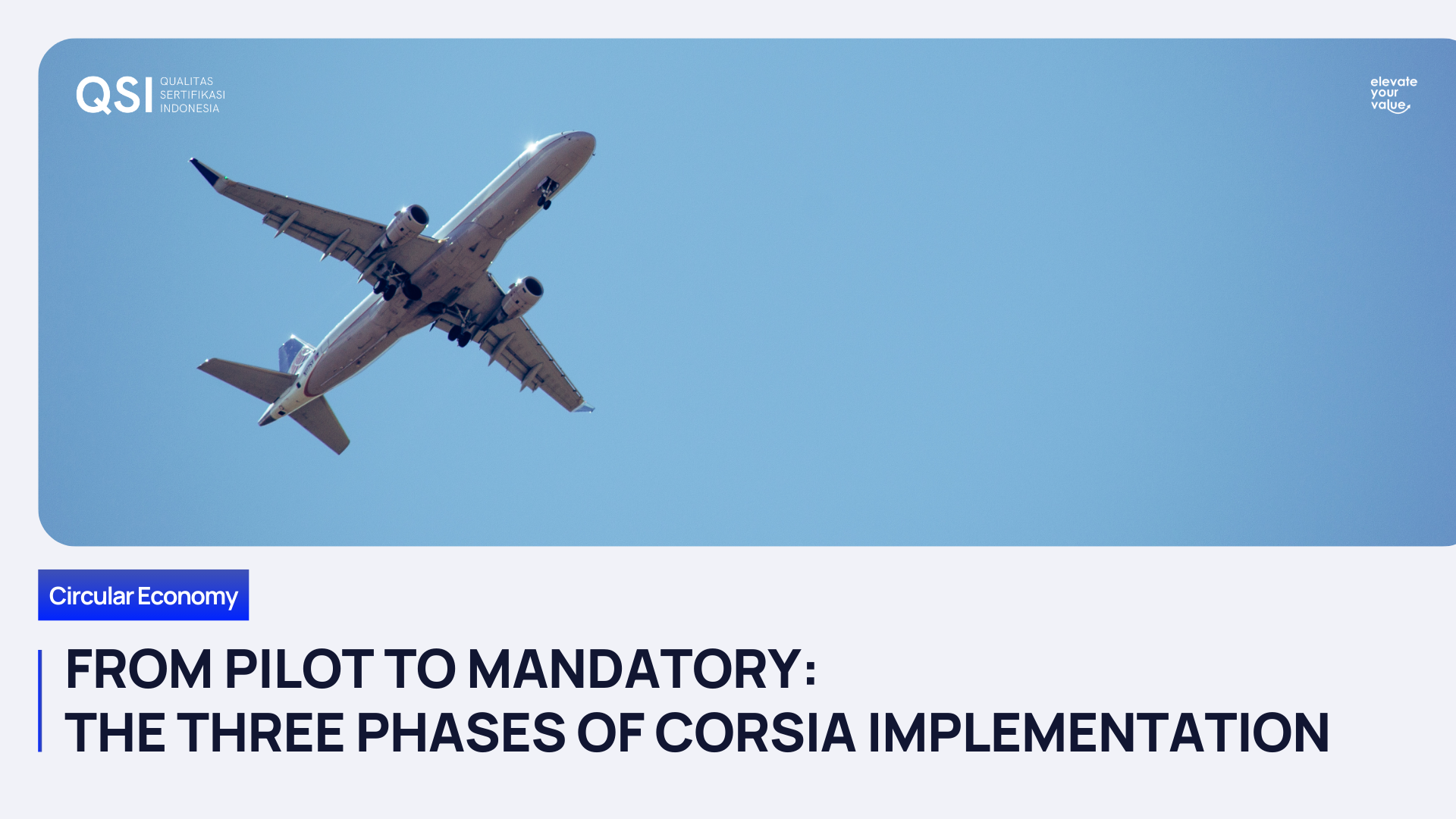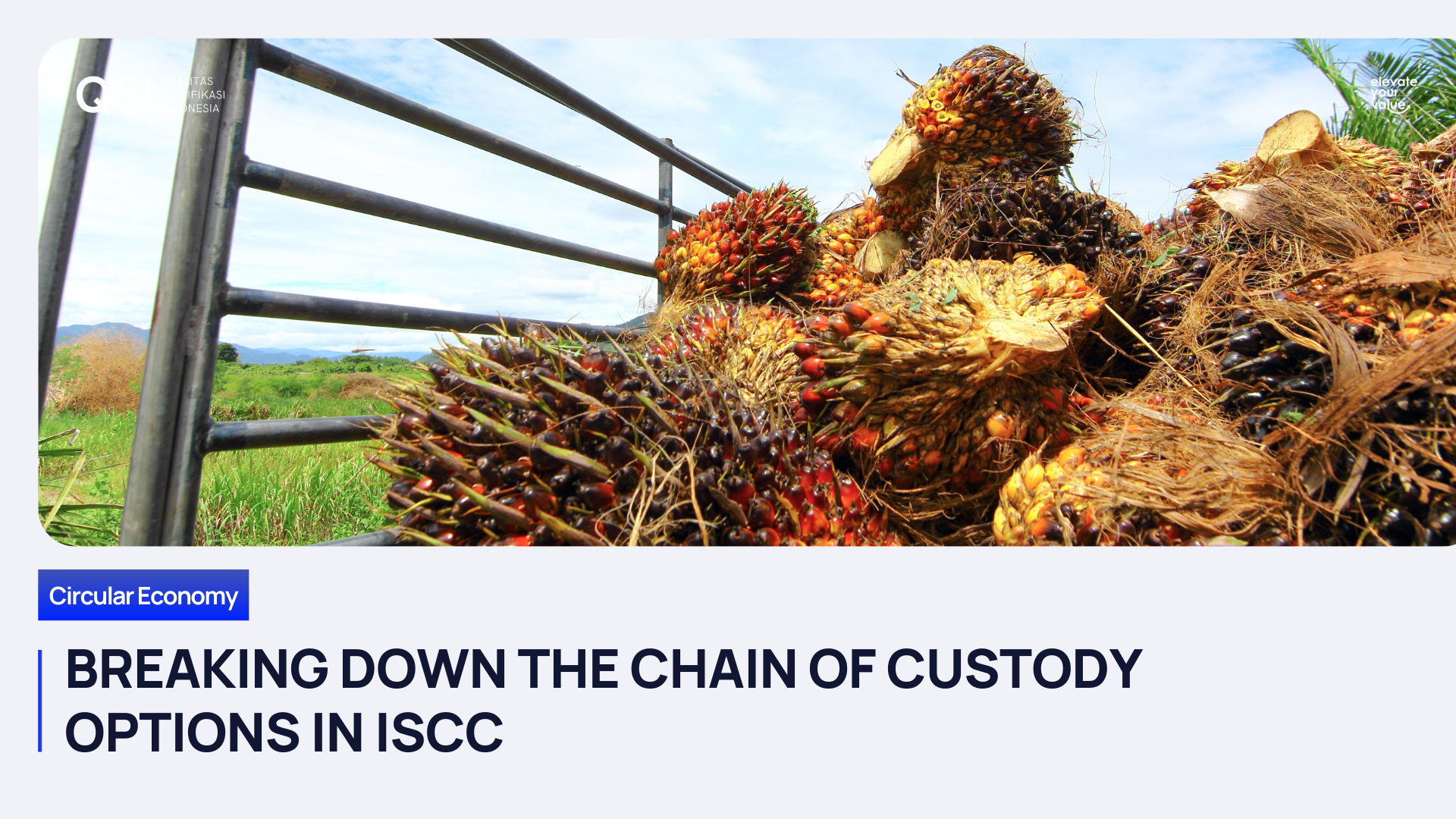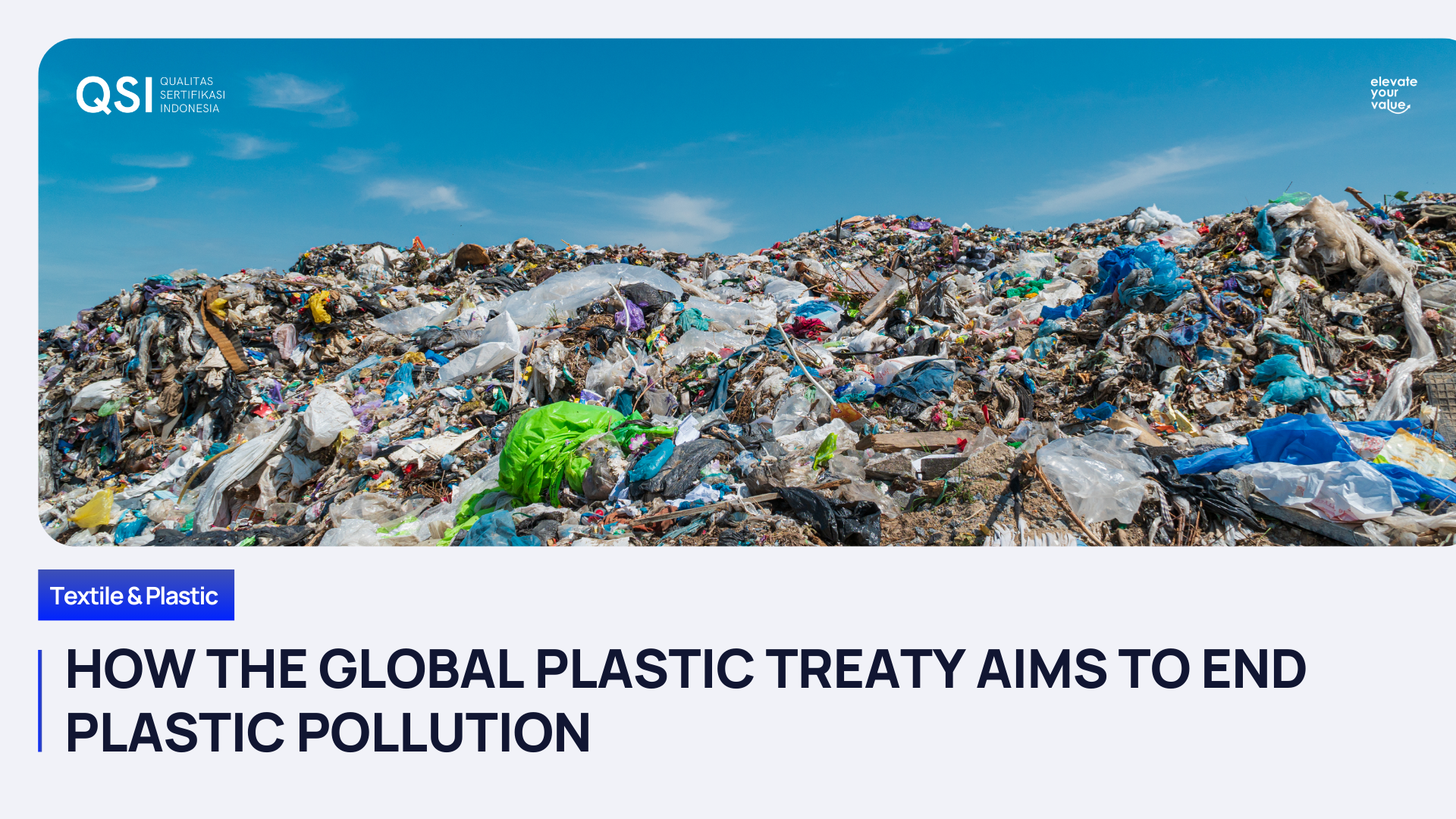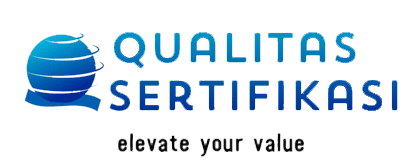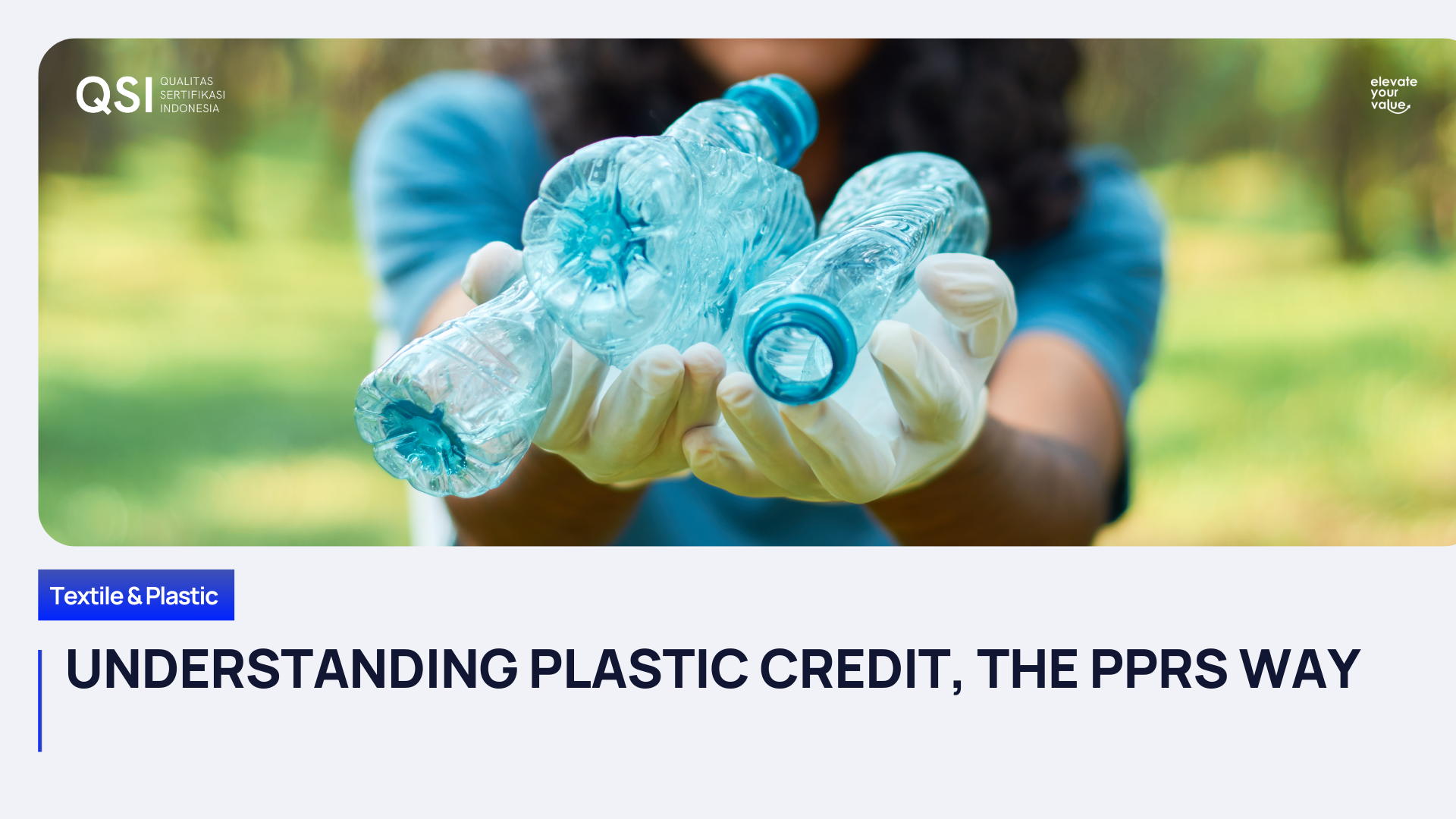Indonesia's CPO Exchange and ISCC: Unlocking New Opportunities for Producers and Exporters
Indonesia is the world's top producer and exporter of crude palm oil (CPO), a versatile and widely used vegetable oil that has various applications in food, cosmetics, and biofuel. Indonesia's CPO export is a vital sector for the country's economy, as it contributes to the foreign exchange earnings, employment, and rural development. However, Indonesia's CPO export also faces some challenges, such as fluctuating prices, environmental issues, trade barriers, and competition from other vegetable oils. In order to overcome these challenges and enhance its competitiveness and sustainability in the global market, Indonesia has recently launched its own CPO futures exchange, and also encourages its CPO producers and exporters to adopt ISCC certification, a globally recognized and respected scheme that demonstrates the sustainability, traceability, and compliance of CPO production and supply chain. In this article, we will analyze how Indonesia's CPO exchange and ISCC certification can create new opportunities for CPO producers and exporters.
The Trends of Indonesia's CPO Export
The data shows that Indonesia's CPO export volume and value have experienced some fluctuations in the past six years. The export volume reached its highest level in 2019, with 29.5 million tons, while the export value reached its highest level in 2021, with 28.6 billion USD. The export volume and value in 2021 increased by 13.4% and 55.1%, respectively, compared to 2020, mainly due to the high demand for CPO from China, India, and the European Union, as well as the recovery of the global economy from the COVID-19 pandemic. The average export price of CPO in 2021 was also the highest in the past six years, at 1,059 USD per ton, reflecting the tight supply and strong demand in the global market.
The data also shows that Indonesia's CPO export volume and value are projected to decline slightly in 2023, with 19.6 million tons and 17.3 billion USD, respectively. This is a moderate drop of 25.3% and 39.4%, respectively, compared to 2022. The main reasons for this decline are the lower production of CPO in Indonesia due to the natural cycle of oil palm trees, the need for replanting, the labor shortage, and the impact of the La Nina weather phenomenon. Moreover, the demand for CPO from the main importing countries, such as China, India, and the European Union, is also projected to decrease due to the preference for other vegetable oils, the adoption of stricter environmental standards, and the emergence of new trade barriers. The average export price of CPO in 2023 is projected to be 885 USD per ton, which is still higher than the average price in 2018, 2019, and 2020, reflecting the resilience and adaptability of the CPO market.
The data also shows that Indonesia's CPO export destination countries have changed over time, with some countries increasing their imports and some countries decreasing their imports. The top four destination countries for Indonesia's CPO export in the period of January to September 2023 were India, China, Pakistan, and the United States, with export volumes of 3,957 tons, 3,100 tons, 2,022 tons, and 1,164 tons, respectively, and export values of 3,342 million USD, 2,677 million USD, 1,773 million USD, and 1,022 million USD, respectively. These four countries accounted for about 47% of the total export volume and 49% of the total export value of Indonesia's CPO in the same period.
The Benefits of Indonesia's CPO Exchange for CPO Producers and Exporters
Indonesia has officially launched its own CPO futures exchange on October 13, 2023, with the aim of establishing a fair, transparent, and clear benchmark price for CPO that reflects the supply and demand conditions in the domestic and international markets. The CPO exchange is operated by the Indonesia Commodity and Derivatives Exchange (ICDX), which is supervised by the Futures Exchange Supervisory Board (Bappebti). The CPO exchange is designed to place buyers and sellers on an equal footing, allowing for effective price negotiations. Ultimately, it will lead to the establishment of a reference price for CPO that can be used by the CPO industry players and stakeholders, such as producers, exporters, importers, traders, consumers, investors, regulators, and civil society.
The CPO exchange can bring various benefits for Indonesia's CPO producers and exporters, such as:
- Increasing price transparency and stability: The CPO exchange can increase the price transparency and stability of CPO, as it provides a platform for the CPO industry players to discover and monitor the market prices of CPO in real time, based on the actual transactions and contracts. The CPO exchange can also reduce the price volatility and uncertainty of CPO, as it allows the CPO industry players to hedge and manage their price risks, by using the futures contracts and options contracts that are available on the exchange. The CPO exchange can also reduce the price manipulation and distortion of CPO, as it involves an independent and credible third-party verification and settlement system, as well as a strict and transparent regulation and supervision system.
- Improving market access and competitiveness: The CPO exchange can improve the market access and competitiveness of Indonesia's CPO producers and exporters, as it enables them to reach and connect with more potential buyers and sellers, both domestically and internationally, through the exchange platform. The CPO exchange can also enhance the market value and attractiveness of Indonesia's CPO, as it provides a reliable and reputable reference price for CPO that can be used by the CPO industry players and stakeholders, as well as by the media and the public. The CPO exchange can also increase the market efficiency and convenience of Indonesia's CPO, as it offers a standardized and simplified trading mechanism and procedure for CPO, as well as a fast and secure payment and delivery system for CPO.
- Supporting industry development and innovation: The CPO exchange can support the industry development and innovation of Indonesia's CPO, as it creates a conducive and competitive market environment for CPO, that encourages the CPO industry players to improve their quality and productivity, as well as to diversify their products and services. The CPO exchange can also foster the industry collaboration and cooperation of Indonesia's CPO, as it facilitates the communication and interaction among the CPO industry players and stakeholders, as well as the exchange of information and knowledge among them. The CPO exchange can also stimulate the industry research and education of Indonesia's CPO, as it generates and disseminates valuable market data and analysis for CPO, as well as provides training and capacity building for CPO.
The Benefits of ISCC Certification for CPO Producers and Exporters
ISCC certification is a way to demonstrate that your CPO production and supply chain are sustainable, traceable, and compliant with the relevant regulations and standards. ISCC certification is recognized by the European Commission as fulfilling the sustainability criteria of the Renewable Energy Directive (RED) and the Fuel Quality Directive (FQD), which require biofuels and bioliquids to meet the requirements of greenhouse gas emission reduction, biodiversity protection, and social and labor rights. ISCC certification is also respected by the global market as a credible and reputable scheme that involves an independent third-party audit and verification. ISCC certification is provided by QSI, a certification body that offers ISCC certification services in a timely and cost-effective manner.
ISCC certification can bring various benefits for Indonesia's CPO producers and exporters, such as:
- Accessing the European market: The European market is one of the most important and lucrative markets for Indonesia's CPO export, as it accounted for about 15% of the total export volume and 18% of the total export value in 2021. However, the European market is also one of the most challenging and demanding markets, as it requires biofuels and bioliquids to meet the sustainability criteria of the Renewable Energy Directive (RED) and the Fuel Quality Directive (FQD). These criteria include the reduction of greenhouse gas emissions, the protection of biodiversity, and the respect of social and labor rights. ISCC certification is one of the schemes that are recognized by the European Commission as fulfilling these criteria, and therefore, it can help Indonesia's CPO exporters to access the European market and avoid the risk of being excluded or penalized.
- Reducing greenhouse gas emissions and improving environmental performance: The CPO industry in Indonesia has been making efforts to reduce its negative impacts on the environment, such as deforestation, biodiversity loss, greenhouse gas emissions, and land conflicts. These efforts have been recognized and appreciated by some consumers, NGOs, and governments, especially in the European Union, which is planning to phase out the use of CPO for biofuel by 2030. To support these efforts, Indonesia needs to improve its environmental governance and certification system, as well as to promote the production and consumption of sustainable palm oil, both domestically and internationally. ISCC certification can support Indonesia to achieve this goal, as it requires the measurement and reduction of GHG emissions along the supply chain, as well as the compliance with the principles of good agricultural practices, environmental protection, and social responsibility.
- Enhancing reputation and credibility: The CPO industry in Indonesia has been improving its reputation and credibility in the global market, as it has been addressing the allegations and accusations of being unsustainable and unethical.
If you want to learn more about how ISCC certifications can help your business, please give us a call or visit our website!
Recent posts
Drop us a line
Contact Us
Share
